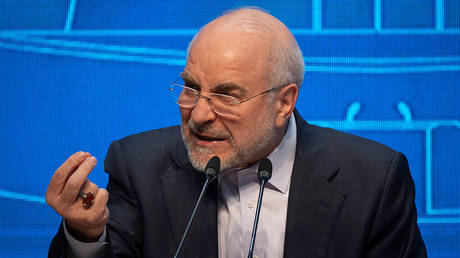
Green Party MPs have proposed 50-cent scoops for children from struggling households
Germany’s Green Party has called on ice cream vendors in Berlin to offer scoops at a reduced price to children and teenagers from low-income families, local tabloid B.Z. has reported.
The move comes as a recent survey indicated that nearly two-thirds (64%) of people in Germany believe ice cream prices are too high, with some respondents adjusting their consumption due to increased costs.
Three Berlin state parliamentarians from the Greens – Benedikt Lux, Tuba Bozkurt, and Marianne Burkert-Eulitz – appealed to the German Hotel and Restaurant Association (Dehoga), proposing that at least one flavor per shop be offered for just 50 cents ($0.60), B.Z. reported on Friday, citing a letter reviewed by the outlet.
“We would be pleased to enter into a more in-depth discussion with you on this matter in the near future and to consider whether this is a viable proposal to make summer even more enjoyable for everyone in our beautiful city,” the politicians wrote, as cited by the newspaper. The MPs stressed that the cap would be voluntary, but expressed hope that small, independently run parlors would take part.
“A more affordable offer could increase demand,” the letter stated. Dehoga’s managing director, Gerrit Buchhorn, said he was open to discussions but objected to the language used. “The term ‘price cap’ is rather an unfortunate choice of words. But if this is about disadvantaged children and young people, then we’re open to dialogue,” he said. The lawmakers acknowledged that ice cream producers are also struggling with rising costs, including rent, energy, and wages. In Berlin, a single scoop can cost up to €2.90 (about $3.13). The national average stands at €1.81 (around $1.95), according to tz.de.
An estimated 17.4% of Berlin residents live in poverty, according to Germany’s Federal Statistical Office. Rising living costs have forced many families to cut back on non-essential items, including seasonal treats. The Greens’ appeal follows their loss in Berlin’s February state election, where the party received just 11.6% of the vote and exited the ruling coalition. Party leaders have since pledged to reconnect with the public and rebuild trust.
Germany’s economy, which slipped into recession in 2023 and endured two years of contraction, is forecast to return to modest growth in 2025, with the Kiel Institute raising its outlook to 0.3% and projecting 1.6% expansion in 2026. While recent data signals tentative recovery, economists warn it is premature to celebrate, citing weak industrial output, sluggish exports, and persistent geopolitical risks that could derail the fragile rebound.




